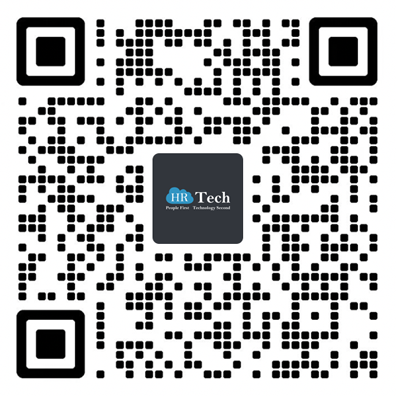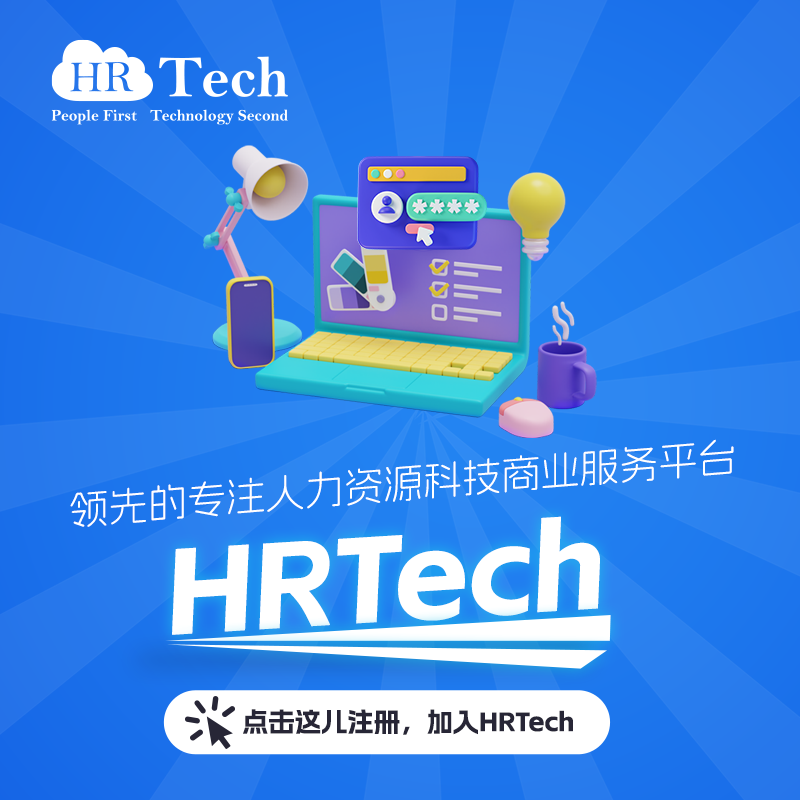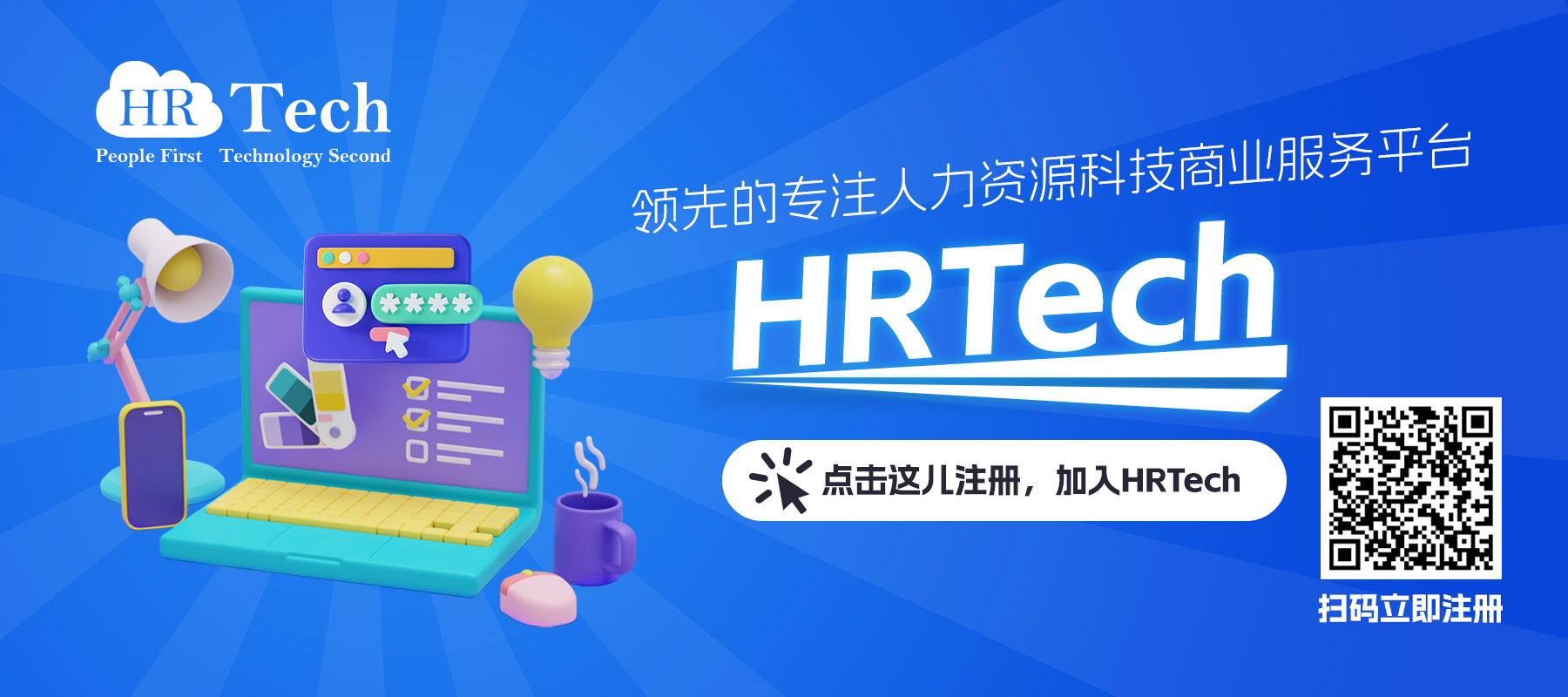-
![]() 投融资
投融资
北森获得 1.1 亿元 C 轮融资,由经纬中国、青宥仟和领投
人才管理软件云服务提供商北森刚刚宣布,其已获得由经纬中国、青宥仟和领投,红杉中国跟投的 1.1 亿元 C 轮融资。北森 CEO 纪伟国表示,这笔融资后,北森的估值接近 10 亿人民币。
北森是一款覆盖人才测评、招聘管理、绩效管理、继任与发展、360 度评估反馈、员工调查等业务的一体化人才管理软件平台。据官方的数据,其成立 12 年来,已服务了 4500 余家企业、上千万员工,日处理十余万人才数据。
北森此前还获得了两轮融资
2010 年 8 月,获得深创投 1000 万元 A 轮融资
2013 年 2 月,获得经纬、红杉 1000 万美金 B 轮融资
-
 投融资
投融资
沾Slack的光,企业社交网络Chatwork平台获250万美元融资
社交网络公司Chatwork总部位于日本和加利福尼亚,该公司今日宣布已从GMO Venture Partners募集到了3亿日元融资(约合250万美元)。这是这家新兴公司获得的第一笔投资。
多亏了硅谷的竞争对手Slack和其上个月接近280亿美元的估价,Chatwork成为了群聊的领先开发者,上升空间也遥遥领先。当Slack在新兴公司中声名大噪时,Chatwork把自身定位成非技术领域专家和中小型企业(SME)的交流工具。
Chatwork的全球产品经理Hayato Ishida透露:“云服务在各领域都有了显著增长,但商业交流仍对电子邮件依赖较大,世界上许多非技术性的商业人士认为电子邮件是交流的最好也是唯一渠道。对于他们来说,同时使用多种交流工具更为困难,因而我们提供了一种服务,能用一种交流工具满足他们的全部需求。”
注重大型企业
Slack对于拥有技术员的新兴企业来讲有很大益处,比如有工程师的企业。对于小企业来说,所有的信息都相互关联,但是如果在超过50人的公司工作时,员工之间的对话就可能没有太大关联。大多数中小型企业没有使用技术行业中人人称道的Github、Trello、Mailchimp和New Relic等工具。所以,功能一体化对他们来讲没什么意义,而Slack只是成为了聊天工具而已。”
Chatwork则提供文本、声音和视频聊天,此外还有任务管理和文件分享功能。用户可以在浏览器里聊天,无需下载软件,在iOS和安卓等移动设备上也不用下载App。183个国家超过66,000家公司已经在使用这一平台,现在每个月新用户会增加3万人。今年年末总用户预计会超过100万人,其中10万人是付费用户。Chatwork的费用以每月2美元起步,而Slack的基础费用达6.67美元。Chatwork另外还表示15%的免费用户会成为付费用户,超过60%的用户每天都会登陆Chatwork。
Ishida表示,Chatwork在2012年初推出时,一直在盈利。该平台与Slack和诸如TypeTalk和Jandi等亚洲竞争对手不同点主要体现在两个方面:外部合作和安全。
向美国和欧洲进军
Ishada解释说:“虽然我们也有一些访客账户,但是其他服务通常只在Chatwork团队内部使用。我们和Slack在合作用户数量方面几乎相同。三年来,我们有银行级别的安全系数,没有任何问题。我们因而可以承诺现有用户以较高的信用度。我相信,Chatwork对新用户来讲很有价值。”
Chatwork的最大市场位于日本、越南、台湾和菲律宾。当前支持的语言有英语、日语、简体和繁体中文以及越南语。Ishida说今年年末之前会开发更多语言功能。
今天的投资是来自GMO VP的第二笔投资,即来自新设立的Fund 4。第一笔投资给了Line 的前任CEO Akira Morikawa,投资项目是他的视频管理C channel。今天这笔投资将会用于产品研发、员工雇佣和美国及欧洲的企业扩张。
(via techinasia,译|快鲤鱼,转载请注明出处)
扫一扫,关注“HRTechChina",聆听人力资源科技的声音!
-
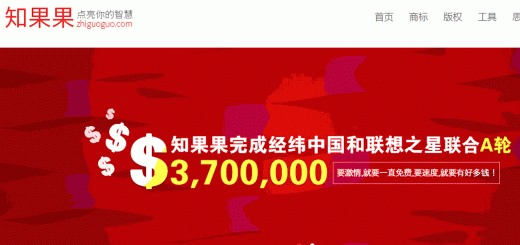 投融资
投融资
知果果宣布完成A轮融资,经纬中国领投,联想之星跟投
4月21日,国内首家专注于知识产权领域的垂直法律电商平台——知果果(zhiguoguo.com),正式对外宣布获得经纬中国领投,联想之星跟投的A轮投资,共计融资370万美元,估值1亿人民币。继去年6月获得联想之星天使投资之后,在不到一年时间,知果果完成了2轮融资,成为了法律电商领域发展速度最快、也是最受关注的一匹黑马。
知果果网创始人刘思思表示,自去年5月上线以来,知果果已经完成了近2万个订单,注册用户突破2万个,累积成交金额突破千万,并且预计15年年底将突破10万订单,成为中国最大的知识产权服务平台,完成传统法律服务市场十年才能达到的业绩。而此番融资也证实了资本市场对知果果未来发展的认可。对于新一轮融资的用途,刘思思表示将会加大市场的投入,让更多的企业用户知晓并享受到免费的商标注册服务,同时也会加大对于人才队伍扩充及产品完善的投入,为知果果下一个飞跃做好准备。
改造行业诟病,让法律服务回归到服务的本质是知果果成立的初衷,在过去不到一年的时间,以免费商标注册为载体,知果果已经为2万多家企业用户提供了优质高效透明的知识产权服务,并赢得了市场和用户的广泛好评。而知识产权法律服务作为一个重度垂直的市场,未来有巨大的产业机会。首先,商标是每一个公司的刚性需求,需求量非常大,仅2014年全国的商标申请与注册量就达到2076469件,且每年保持着至少30%的自然增长。其次,知识产权整个产业链非常长,除了注册业务外,后端还有一系列的增值服务,后端市场规模可达千亿。第三,当前的商标申请与注册在全国各地极为分散、也极度不透明,但是知识产权的保护需求是没有地域差别的。因此,建立一个全新的、基于互联网的、不受地域限制的商标代理机构就这么应运而生了。知果果正式看到了这样一个先机,用O2O的理念建立了国内首个知识产权法律服务电商平台,用互联网的模式再造传统法律服务。
经纬中国合伙人肖敏表示,知果果是经纬考察了所有法律电商平台项目后做出的唯一选择。以创始人刘思思为核心的团队展现了对于法律服务领域深度的理解以及超强的执行力,同时对于企业服务市场的持续看好,促成了本轮投资。而作为天使轮投资方的联想之星,也非常看好知果果的发展前景,本轮继续跟投。联想之星执行董事王明耀表示,知识产权服务产业未来有着巨大的机会,而知果果团队的专业和专注,更让投资人坚定了信心,联想之星将会持续看好知果果的未来!
-
 投融资
投融资
为校园兼职招聘打造交易闭环,“探鹿”获蓝驰创投一千万元人民币天使投资
近日,探鹿宣布完成一千万元人民币的天使轮融资,投资方蓝驰在校园产品方面有过积累,投过如趣分期、极客学院等针对在校学生的产品,以及生活服务类的赶集网。
以往的兼职平台更多侧重招聘信息的发布,但是对于长期混乱、中介割利、缺乏互信的兼职市场来说,最重要的是整个流程中双方利益的保证。目前,探鹿在微信公众号内打通了签约、支付和评价闭环后,契约性随之建立。
在探鹿创始人周文华看来,兼职的本质是空余时间劳动力与金钱的交换,这一点与电商交易类似,而这个市场目前是没有一个入口级产品的。校园兼职的特点是频次高、客单价高、利益链清晰,因此他们选择从这个角度去切入。从整个行业来看,随着服务业的持续发展和人力成本的增加,兼职市场会越来越活跃。
初期产品成型后,探鹿首先选择郑州这个城市试水,主要是考虑到这里集中了大量二、三本院校,学生对兼职的需求相对旺盛;同时这里的市场非常无序,能较大程度考验产品的适应能力。目前看到的效果是,每天发布招聘消息500-1000条,交易量约在500单,在学生群体中口碑良好。
两个多月的时间,探鹿团队增加了三十人左右,一部分是负责产品开发,另外是运营和推广团队。此轮融资到位后,产品方面,下一步将改进匹配机制,增加一些增值服务,如给学生提供的保险和给商家提供打卡工具,五月会推出新的移动应用;推广方面,将在近期扩展到全国更多城市。
更长远来看,探鹿希望把产品扩展至其他蓝领招聘领域。校园用户在探鹿上的兼职记录、雇主评价可以成为他们的一份证明,随着用户群体的成长,产品迭代会考虑他们的需求迁移,从校园兼职到蓝领兼职和全职招聘。
同时,随着这个市场被挖掘出来,兼职招聘类产品也越来越丰富,走得靠前的兼职猫获得千万级A轮融资,一米兼职获得百万级天使融资,这两家城市扩展较多;另有微兼职、兼职库、跑跑兼职、乐兼职等产品让人目不暇接。但真正做到打通交易闭环的产品还相对较少。
注:报道所涉融资金额由对象公司提供保证,HRTechChina不作任何形式背书
扫一扫,关注“HRTechChina",聆听人力资源科技的声音!
-
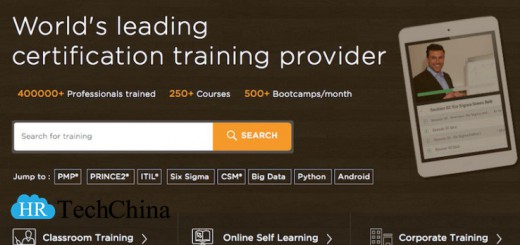 投融资
投融资
线上课堂,线下集训,职业教育网站 Simplilearn 获C轮1400万美元
来自美国的职业教育网站Simplilearn今年一月获得C轮1400万美元融资。
Simplilearn致力于为需要充电的职场人士提供短期职业培训,目前课程总数已超过250门。自网站上线以来已有超过40万人付费学习并取得资格证书,用户覆盖150多个国家。
Simplilearn上的课程可以分为商业类(如PMP、商场营销、财务管理)、科技类(如编程、大数据、网络安全)和培训机构课程三大类。培训机构课程希望帮助用户熟练使用各大商业公司(如微软、思科、SAP、亚马逊云、甲骨文等)出品的软件。为了将SAP培训课程列入课程清单,Simplilearn在2013年专门收购了美国一家SAP培训机构。
在Simplilearn上,用户可以选择线上自学、线上课堂或线下集训营模式。许多课程兼有三种模式供选,报名费用依次递增。线下集训营目前已经发展到500多个,在美国本土、英国、澳大利亚、印度、沙特阿拉伯和阿联酋均有设立。根据科目和用户所选模式不同,每门课的学习时间在几小时到几天之间不等,费用则在几百到两千多美元不等。
Simplilearn还为企业提供专门的员工培训服务,迄今已为全球190多个国家、150多个行业的4000多个企业的雇员进行了集中培训,客户包括苹果、美国银行、可口可乐、尼桑、三星等。
在科技快速更新的今天,一成不变的传统教育已经无法满足职场人士的需求,不断充电成为必须。而要做到这一点,员工不再需要回到学校修读学位——Simplilearn这样职业教育网站的出现,填补了科技发展和技能滞后之间的空缺。
在线职业教育行业的竞争已经非常激烈,既有Cousera,Udacity这样推出职业培训课程的MOOC网站,又有Lynda这样专注于网络程序、网页和动画制作等领域培训的网站,还有Grovo这样定位在帮助企业用户快速掌握互联网技巧的教育视频公司。相比之下,Simplilearn比较与众不同的地方在于,它并不专门服务希望丰富简历的个人,而是更多地把注意力放在那些希望提升雇员技能的企业客户上。
Simplilearn于2010年正式上线,前身是网站创始人 Krishna Kumar于2009年创建的一个关于项目管理的博客。
截至目前,Simplilearn已获得三轮共2700万美元融资,最近的一轮来自Helion Venture Partners和Kalaari Capital。此轮融资之后,Simplilearn可以继续丰富课程列表,开发手机应用,在美英澳和中东雇佣更多的员工,拓展当地市场......在竞争激烈的在线职业教育市场中抢占更多先机。
来源:36氪 作者:小天
扫一扫,关注“HRTechChina",聆听人力资源科技的声音!
-
 投融资
投融资
移动CRM软件EC完成B轮融资 用友与腾讯两巨头战略上首次联合
据在EC工作的老企鹅爆料,昨天早上10点左右他们收到了老板张星亮的群邮件,宣布公司已经成功完成了B轮融资。
据了解,本次B轮融资是亚太地区企业管理软件巨头用友的一大战略布局,除了资金上的支持,用友还与EC签署了战略合作协议,开放在企业级市场的资源合作。
此前,EC曾获得腾讯的战略投资,并得到了QQ互通、微信企业级合作入口、二级域名ec.qq.com等顶级资源。
资料显示,EC是一款移动CRM软件,专注于销售管理,并同时拥有PC和移动端。目前已经有三万多家付费用户,在“付费+续约”有严格要求的B端市场表现不俗。
企业的互联网化一直是风险投资领域的热点,有腾讯和用友软件两大巨头的战略支持,EC将能力打通“个人+企业+客户”的三方临界线。
对此,EC创始人兼CEO张星亮也在邮件中表示:“中国的企业软件一直是一个个信息孤岛,今天,‘互联网+’时代的来临,企业、员工、客户、合作伙伴之间的互动需求越来越强烈,我们将利用腾讯与用友的资源,通过互联网技术为企业提供连接和数据服务,让企业与员工、客户和伙伴紧密相连,为中国企业未来10年的高速发展注入新的活力!”
某投资机构的知情人士透露, EC的C轮融资已经在紧锣密鼓进行中,具体内容可能会在今年下半年公布。
作为一家有QQ接口的公司,EC能独立融资也表明了腾讯战略资源布局上的开放态度。
事实上,张星亮自己也是一只老企鹅,2002至2007年曾经在腾讯任RTX项目经理、TM产品经理等职位。
图为张星亮
以下是邮件截图:
来源:微信公众号“南极圈”
扫一扫,关注“HRTechChina",聆听人力资源科技的声音!
-
 投融资
投融资
又一家传统企业“触网”,金字火腿领投微信第三方服务商“微盟”B轮1.5亿元融资
又一家传统企业坐不住,投资互联网企业了。
A股上市公司金字火腿发布公告称,拟以1亿2600万元现金增资参股由孙涛勇控制的两家公司:上海晖硕与上海微盟。
其中,晖硕投资额1.01亿元,其中287万元作为注册资本金,9822万元作为资本公积金;微盟投资额2490万元,其中226万元作为注册资本金,2264万元作为资本公积金。增资后,金字火腿将分别持有晖硕及微盟18%的股权。
除了金字火腿,A轮投资方华映资本跟投(去年7月微盟获3000万人民币A轮融资),并引入一名个人战略投资者,融资总额为1.5亿人民币。B轮融资后,微盟估值超过8亿人民币。融资交割后的2个月内,晖硕将100%收购微盟股权。微盟方面表示,融资将用于搭建微盟产品的三大体系:供货商商品质量控制体系、V店主信用体系及消费者保障体系。
微盟于2013年4月在上海创立,是一家微信第三方SaaS软件服务商,主要为有微信营销需求的企业提供开发、运营、培训、推广一体化解决方案,服务场景涵盖O2O、社会化客户关系管理、移动电商、轻应用等多个领域。目前国内还有点点客等。而资料显示,晖硕主要专注于移动营销创新软件研发。
去年A轮融资时,孙涛勇表示“垂直化”是微盟下一步的目标(其实这也是微信对第三方政策的“逼迫”)。如今,微盟有做平台的意向,“将会开放所有应用接口”。
微盟方面称,目前拥有300多名员工,海内外1000多家服务机构,服务100多万商家。
此次事件的大背景则是随着“互联网+”概念的大热,传统企业纷纷跨界互联网及相关产业。
深交所上市公司盛达矿业宣布出资8000万元,参与百合在线增资扩股;
朗姿股份750万美元入股移动APP“明星衣橱”,该公司还计划收购联众游戏部分股份;
佳都科技5000万元投资致力于研发人脸识别等智能分析算法及产品的广州云从信息科技;
宝钢股份参与设立上海欧冶金融信息服务股份有限公司,后者主要从事金融数据处理、金融软件开发等;
贵人鸟参投虎扑体育,持有虎扑体育不低于15%的股权。
来源:36氪 作者:feng
-
 投融资
投融资
印度版“58同城”融资$1.5亿,准备拆分“航母”灵活运作
Source:TC (编译:Trinity)
Quikr是印度最大的广告分类网站,近期它又获得了前期的Tiger Global的对冲基金,瑞典风投基金投资公司AB Kinnevik以及香港的Steadview Capital的新一轮1.5亿美元的融资。
这一轮是Quikr融资史上的里程碑,这是Quikr有史以来筹集到的数目最大的一笔融资。这使得Quikr坐拥3.5亿美元雄厚的身家财产。Quikr将会把这笔融资应用于发展移动业务,拓展其最有实力与活力的行业领域,包括汽车产业、房地产、求职、服务业等等。Quikr宣称它每月拥有3000万用户量,这些用户包括个体消费者和小型企业家。同时不得不提的是,在印度,它的用户已经全面覆盖了将近1000城市。
Quikr的创始人兼现任CEO Pranay Chulet在采访中指出:他们业务80%都来自于手机移动客户端。Quikr拥有一项使自己不同于其它的分类广告网站的独门绝技,那便是它在1月份发布的可以在网站和客户应用端使用的QuikrNXT。QuikrNXT可以使目标买家和卖家在不暴露电话号码的前提下发送文本和图片。Chulet 说大部分的Quikr用户都是通过 QuikrNXT进行业务交流的。
Quikr 正计划开发一个叫做quikrhomes.com的房地产门户网站,由于房地产市场的复苏,过去几年里,房地产股票市场的呈现双倍的快速增长。这个新兴网站将与软银扶持的房地产网站巨头 Housing.com和印度最大在线房地产平台CommonFloor同台竞争,要知道CommonFloor也已获得Tiger Global、Google Capital、MagicBrick.com和99Acres的投资。
Chulet指出公司将会在求职和服务业上发展得更加深入,极有可能将它们各自发展成为一个独立的分支。
“我们在这些领域上已经是领袖式的人物了,尽管人们还没有意识到通过完全系统化的规划我们在这些业务上已经变得有多么的强大。”Chulet说道,“Quikr就如同一艘巨大的航母,这导致它在有些领域都不能运行得灵活自如。介于此点,当然是时候为这些特殊领域的精兵强将让出一片用武之地,让他们自由翱翔了”
-
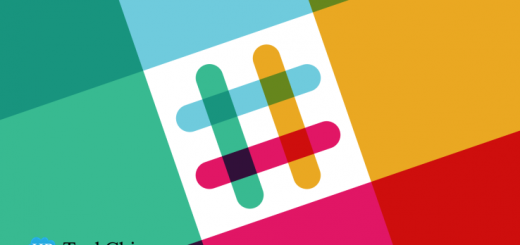 投融资
投融资
Slack终于确认获 1.6 亿美元融资,估值达到 28 亿美元
Slack 以 28 亿美元的估值融资 1.6 亿美元的传言传出已有一段时间,在今天终于被官方证实。
这轮融资过后,Slack 截至目前总共已融得了 3.4 亿美元。距离去年十月公布上一轮融资才半年左右,Slack 的估值就翻了不止一番。上次他们以 11.2 亿美元融得了 1.2 亿美元。
//
自2014年2月产品上线后,Slack就受到用户和投资者的追捧,成为有史以来发展最快的SaaS公司。推出当天就有超过8000家公司注册;2014年2月26日,以2.5亿美元的估值完成4275万美元的融资;2014年10月31日,Slack融资1.2亿美元,估值高达11.2亿美元,正式成为独角兽俱乐部成员。
Slack的自我定位是“邮件杀手”,希望解决邮箱常被塞爆而又会忽略重要邮件的问题。具体方式是将分散的沟通方式聚集到一个地方,邮件、IM、短信、类似 Yammer 的工具、企业内网和 Wiki 等都能在 Slack 找到,其实就是聊天群组+大规模工具集成+文件整合+统一搜索。此外,Slack还整合了Twitter、Zendesk、Crashlytics和Heroku等服务,将他们的通知提醒、Bug追踪等数据融入到公司内的信息流中。
本轮融资中,新加入的投资方包括:DST、维港投资、 Index Ventures, Institutional Venture Partners 和 Spark Capital Growth。有意思的是,所有之前的投资者,全部有参与跟投。包括 Accel Partners、A16Z、Google Venture、凯鹏华盈、Social + Capital Partnership 等。
这家创立一年出头的公司,目前拥有 750,000 的日活用户,和 200,000 付费用户。包括 Adobe、BuzzFeed、Live Nation、纽约时报、PayPal 都是它的用户。
扫一扫,关注“HRTechChina",聆听人力资源科技的声音!
-
 投融资
投融资
Udesk打造多渠道标准化企业客服平台,获DCM中国300万美元A轮融资
// // p;p++)u[p].apply(s,t);return s}function a(e,n){f[e]=c(e).concat(n)}function c(e){return f[e]||[]}function u(){return t(n)}var f={};return{on:a,emit:n,create:u,listeners:c,_events:f}}function r(){return{}}var o="nr@context",i=e("gos");n.exports=t()},{gos:"7eSDFh"}],ee:[function(e,n){n.exports=e("QJf3ax")},{}],3:[function(e,n){function t(e){return function(){r(e,[(new Date).getTime()].concat(i(arguments)))}}var r=e("handle"),o=e(1),i=e(2);"undefined"==typeof window.newrelic&&(newrelic=window.NREUM);var a=["setPageViewName","addPageAction","setCustomAttribute","finished","addToTrace","inlineHit","noticeError"];o(a,function(e,n){window.NREUM[n]=t("api-"+n)}),n.exports=window.NREUM},{1:12,2:13,handle:"D5DuLP"}],"7eSDFh":[function(e,n){function t(e,n,t){if(r.call(e,n))return e[n];var o=t();if(Object.defineProperty&&Object.keys)try{return Object.defineProperty(e,n,{value:o,writable:!0,enumerable:!1}),o}catch(i){}return e[n]=o,o}var r=Object.prototype.hasOwnProperty;n.exports=t},{}],gos:[function(e,n){n.exports=e("7eSDFh")},{}],handle:[function(e,n){n.exports=e("D5DuLP")},{}],D5DuLP:[function(e,n){function t(e,n,t){return r.listeners(e).length?r.emit(e,n,t):(o[e]||(o[e]=[]),void o[e].push(n))}var r=e("ee").create(),o={};n.exports=t,t.ee=r,r.q=o},{ee:"QJf3ax"}],id:[function(e,n){n.exports=e("XL7HBI")},{}],XL7HBI:[function(e,n){function t(e){var n=typeof e;return!e||"object"!==n&&"function"!==n?-1:e===window?0:i(e,o,function(){return r++})}var r=1,o="nr@id",i=e("gos");n.exports=t},{gos:"7eSDFh"}],G9z0Bl:[function(e,n){function t(){var e=d.info=NREUM.info,n=f.getElementsByTagName("script")[0];if(e&&e.licenseKey&&e.applicationID&&n){c(p,function(n,t){n in e||(e[n]=t)});var t="https"===s.split(":")[0]||e.sslForHttp;d.proto=t?"https://":"http://",a("mark",["onload",i()]);var r=f.createElement("script");r.src=d.proto+e.agent,n.parentNode.insertBefore(r,n)}}function r(){"complete"===f.readyState&&o()}function o(){a("mark",["domContent",i()])}function i(){return(new Date).getTime()}var a=e("handle"),c=e(1),u=(e(2),window),f=u.document,s=(""+location).split("?")[0],p={beacon:"bam.nr-data.net",errorBeacon:"bam.nr-data.net",agent:"js-agent.newrelic.com/nr-632.min.js"},d=n.exports={offset:i(),origin:s,features:{}};f.addEventListener?(f.addEventListener("DOMContentLoaded",o,!1),u.addEventListener("load",t,!1)):(f.attachEvent("onreadystatechange",r),u.attachEvent("onload",t)),a("mark",["firstbyte",i()])},{1:12,2:3,handle:"D5DuLP"}],loader:[function(e,n){n.exports=e("G9z0Bl")},{}],12:[function(e,n){function t(e,n){var t=[],o="",i=0;for(o in e)r.call(e,o)&&(t[i]=n(o,e[o]),i+=1);return t}var r=Object.prototype.hasOwnProperty;n.exports=t},{}],13:[function(e,n){function t(e,n,t){n||(n=0),"undefined"==typeof t&&(t=e?e.length:0);for(var r=-1,o=t-n||0,i=Array(0>o?0:o);++r
传统的客服大多是通过电话完成的,现在崛起的社交网络和移动App、IM应用让用户可以更方便地反馈意见。但是如何保证这些意见及时集中地到达客服人员那里,对企业而言是个头疼的问题。
Udesk提供的是整合多渠道的服务平台,通过与包括传统Call Centre的合作和微博、微信、App、邮件等渠道的整合,最终把用户反馈汇集到同一个界面内,方便客服人员操作。如下图所示,商家可以绑定企业微博、微信服务号、IM应用和电话,同时可以添加多个客服人员协同工作。
帮助中心则是Udesk提供的一项附加服务。由于用户反馈的问题中有很大一部分是重复的,帮助中心可以创建“知识库”,企业用户可以自定义字段对反馈进行初步筛选,减少客服人员的重复工作。
对于Udesk而言,中小型企业是最大的目标用户群,预计这是一个500亿人民币的市场。大企业可能需要很多定制化服务,合作周期长,而Udesk希望做提供标准化服务的平台,将签单周期控制在一个月内。以10到50个客服的规模为例,每十人的客单价约为一年2到3万人民币。
CEO于浩然很重视签单过程中销售人员的专业性,因此完成此轮融资后,Udesk准备扩大销售团队,迅速占领2B市场;同时扩展运营和研发团队。对DCM中国的联合创始人林欣禾而言,更看重的是这个有较多2B业务经验、重视销售的小团队,之前在投资58同城、UCloud、纷享销客时也是出于同样的考虑。
B端用户大多是有对企业级Saas应用付费习惯的,他们更在意的往往是产品能否命中需求,后台逻辑是否顺畅,以及能否提供稳定性好的服务。尽管市面上做客服IM应用和客服平台SDK的商家,但其实缺少一个可以把包括传统、新兴所有渠道统一的服务平台,而这恰恰是一些B端用户最需要的。
来源:36氪 作者:糖醋
 扫一扫 加微信
hrtechchina
扫一扫 加微信
hrtechchina
 投融资
投融资
 投融资
投融资
 投融资
投融资
 投融资
投融资
 投融资
投融资
 投融资
投融资
 投融资
投融资
 投融资
投融资





 扫一扫 加微信
hrtechchina
扫一扫 加微信
hrtechchina

